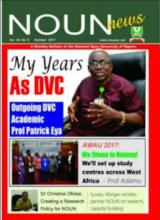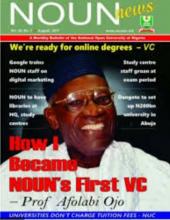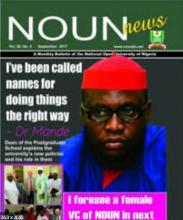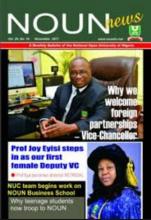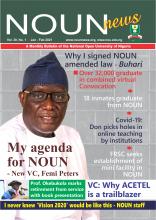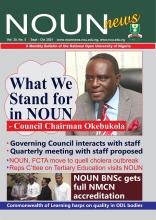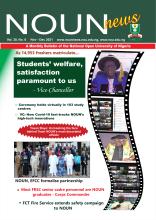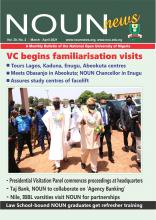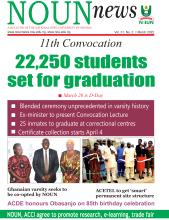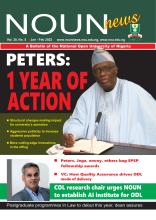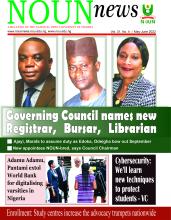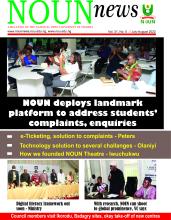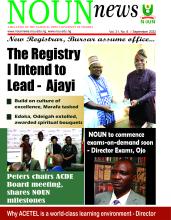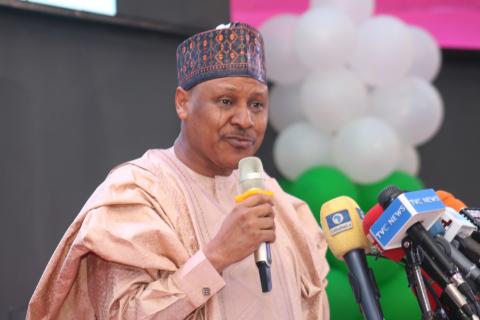
The Minister of Information and National Orientation, Mohammed Idris, has reiterated the Federal Government’s commitment towards combating misinformation, disinformation and mal-information among its teeming populace.
To this end, he underlined the critical role of Media and Information Literacy (MIL) in equipping citizens with the skills needed to discern accurate information from falsehood.
Idris stated this on Friday at a one-day symposium with the theme, "New Digital Frontiers of Information, Media and Information Literacy for Public Interest Information," held at the headquarters of the National Open University of Nigeria (NOUN) in Abuja.
The event was jointly organised by the International Media and Information Literacy Institute, the NOUN’s Mass Communication Department, the Federal Ministry of Information and National Orientation, and UNESCO.
The main aim of the symposium was to address the role of Media and Information Literacy (MIL) in a digital age increasingly fraught with misinformation.
In his address, the minister explained that such media literacy will encourage the responsible use of media to benefit the public interest, as he highlighted the importance of collaborations among educational institutions, policy makers, and international organisations to build a well-informed populace.
He said: "A well-informed society is a strong and resilient society. This symposium marks an important step towards equipping Nigerians with the knowledge and tools to verify information and counter the spread of fake news."
The minister encouraged Nigerians to be patriotic and urged them to highlight the country's positive attributes and not always the negatives.
Idris mentioned that MIL is essential not only for tackling misinformation but also for promoting transparency, accountability, and active civic engagement and urged attendees to consider MIL as a means to strengthen public trust, enhance the integrity of information, and empower individuals in the digital age.
He reiterated the Tinubu Administration's commitment to promoting a media-literate society and acknowledged the symposium’s role in advancing this mission.
The NOUN Vice-Chancellor, Prof. Olufemi Peters, in his opening remarks, highlighted the vital role of Media and Information Literacy (MIL) in empowering individuals and fostering enlightened societies.
Peters noted that NOUN, as an Open and Distance Learning (ODL) institution, is committed to providing accessible education and promoting digital literacy, especially in a time when misinformation is shaping public perception and opinion.
He said: "The digital age presents unprecedented opportunities and challenges. As we embrace these changes, it is essential to empower every Nigerian, especially our youth, with the skills to navigate and responsibly engage with digital media."
The VC underscored NOUN's dedication to advancing digital literacy through strategic partnerships and collaborative learning.
UNESCO's Abuja Representative, Mr. Abdoulrahmane Diallo, spoke on UNESCO’s global efforts to promote media and information literacy as a tool for empowerment and democratic participation.
"At UNESCO, we believe that media and information literacy is a fundamental human right," he said, emphasising that UNESCO stands firmly with Nigeria in promoting MIL initiatives.
He added: "In the digital age, MIL fosters critical thinking, social cohesion, and ultimately, the protection of our democratic spaces."
The guest speaker on the occasion, Ms. Mardia Umar, a media personality from EFCC Radio, shared insights into the landscape of digital misinformation in Nigeria, emphasising the need for vigilance, transparency, and community engagement in tackling fake news that often undermine public trust in vital institutions.
Umar Sa'id: "The spread of misinformation is a threat to national development and, through media literacy, we can empower people to discern credible information sources, recognise bias, and protect themselves against manipulation."
She underscored the role of digital tools in promoting accountability and urged institutions to use these tools to enhance public understanding of complex topics like financial fraud and security.
On his part, the Head of the Mass Communication Department, Dr. Lateef Adelakun, expressed gratitude to all participants, speakers, and organising partners, even as he acknowledged the importance of continued collaboration in strengthening MIL frameworks in Nigeria.
Adelakun urged participants to take the insights gained and integrate them into their daily lives, saying, "We are all ambassadors of information literacy. Let’s use the knowledge gained today to help build a media-literate Nigeria."
- Log in to post comments
- 54 views

